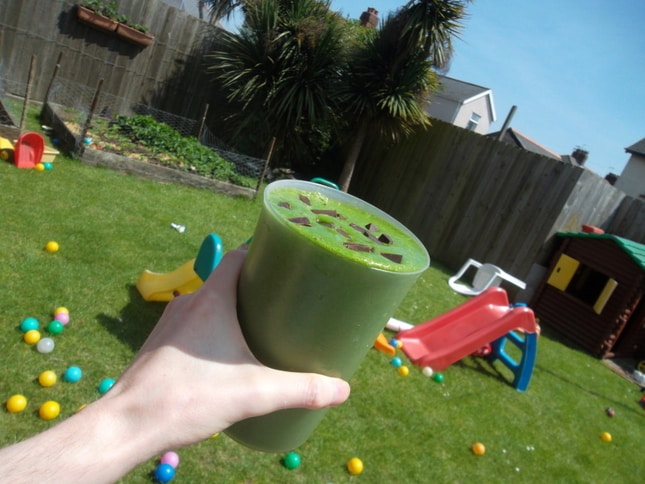Disclosure: This article may contain affiliate links. If you decide to make a purchase, I may make a small commission at no extra cost to you.
I’ve talked a little about what makes people able to do calorie restriction for many years successfully, now there is a study that was published in April which confirms what I had believed.
People who maintain CR for very long periods of time have psychologically distinct profiles compared to the average person. When the average person starts a diet, it’s not too long before they fall off and return to their previous habits. This doesn’t seem to be the case for people who adhere to a CR diet.
When most people think of ‘going on a diet’, it’s not usually to improve their health, it’s usually for losing weight and get thinner in the short term, so people will often rely on extreme diets that are very unhealthy and potentially damaging to their health.
I know a number of successful long-term calorie restrictors who’ve been on the diet for more 10 years, with some on CR for more than 20 years!
These people manage to stay on the diet without showing any signs of disordered eating. When a person typically starts a calorie restriction diet to improve their longevity, their weight loss is secondary to their primary goal, which is to improve their health and live longer.
The reason I started calorie restriction was to improve my health and also part of a long-term strategy to stay alive as long as possible to take advantage of the technology that is coming in the next few decades which would be able to extend my life further.
One of the things found in the study is that we are more future orientated (this is me!). And from talking to people on CR, this is something that was quite obvious. Here’s a quote from the study:
“Results indicated the CR group averaged 10 years of CR but scored lower than comparison groups on measures of disordered eating (p < .001) and psychopathology (p < .001). Particularly against overweight/obese participants, CR participants scored lower on neuroticism (p < .04) and hostility (p < .01), and were stronger in future time orientation (p < .05). Overall, CR profiles reflected high self-control and well being, except for having few close relationships. This study suggests a potential predisposition for successful long-term CR without disordered eating.”
I never took part in this study, but I have been on CRON for about 10 years now and I’ve been eating very healthy for close to 12 years. I would say that the profile describes me pretty well. Calorie Restriction has always been very easy for me to do, but I realize that this is not the case for everyone.
This is why I try to get the point across that even mild CR can have significant benefits. If you combine that with a high-quality vegan diet, then the pay off is going be huge. Perhaps the study that I quoted above should reassure people that living this way does not predispose or cause anyone to develop disordered eating habits.
“To infinity and beyond!”
I love life so much and would love to explore the universe in the future. To go and see other planets and look for alien life out there. This is why living the way I do is so easy for me! I look up at the stars often and wonder what else is out there?
It’s only logical for me to get more involved in the life extension community to make this dream become a reality. And why not dream big? When people are asked about living longer, many say that it would be too boring. No way, I say just the opposite!
We are headed towards a fantastic future and we should be excited and proud of our achievements so far. The best part of our journey is not behind us, it’s ahead of us. So, really, I’m not too bothered about restricting my calories, when the pay off is potentially so huge.
Will We Make It?
Aubrey De Grey uses the term ‘longevity escape velocity’ (LEV), which basically means that we’ll be able to rejuvenate people and keep them alive long enough to take advantage of the more refined and advanced medical procedures that would be more effective in reversing the molecular damage that accumulates over time.
So if you are 80 years old, the first generation of these technologies will be able to take you back 30 years and you would function and look like a 50-year-old.
Since it would take you another 30 years to become biologically 80 again (110 chronologically), the second generation of treatments could take you back another 40 years, so this time you are biologically 40 even though you are 110+ years old.
In the near future, it might be possible to add one year to your remaining life expectancy with each year that passes! There are many exciting technologies that are starting to mature and slowly becoming more effective that could enable this kind of future.
In the near future, we can expect to be able to regenerate new organs and tissues inside the body using stem cells and gene therapy. Also, 3D printing is a very exciting technology!
Recommended reading
Ending Aging: The Rejuvenation Breakthroughs That Could Reverse Human Aging in Our Lifetime By Aubrey De Grey Ph.D. and Michael Rae. This is a few years old now, but still remains the objective of SENS Foundation. It details all the types of damage that need to be repaired in the human body to reverse aging and live longer.
Fantastic Voyage: Live Long Enough to Live Forever By Ray Kurzweil and Terry Grossman. Ray sent me this book many years ago and I loved it! It takes you through all the things which you can do today to extend your life and live to a time when we have full control of disease and aging. He focuses mainly on the Biotech, Information tech, and the Nanotech revolution.
References
1. Angela C. Incollingo Belskya, Elissa S. Epelb, A. Janet Tomiyama. Clues to maintaining calorie restriction? Psychosocial profiles of successful long-term restrictors. Appetite. 2014 Apr 18;79C:106-112. doi: 10.1016/j.appet.2014.04.006. http://www.sciencedirect.com/science/article/pii/S0195666314001718
Article reviewed and updated: February 2019.








Hi Matt,
I’d be interested in hearing your stance on mitochondrial enhancers like C60. Do they play a role in your longevity strategy?
HI Brian! I have read one study about C60, but have been waiting for the results on lifespan extension to be replicated. So I’m not using it at the moment as part of my life extension strategy. I could talk about this and other potential candidates in a future post. Thanks!